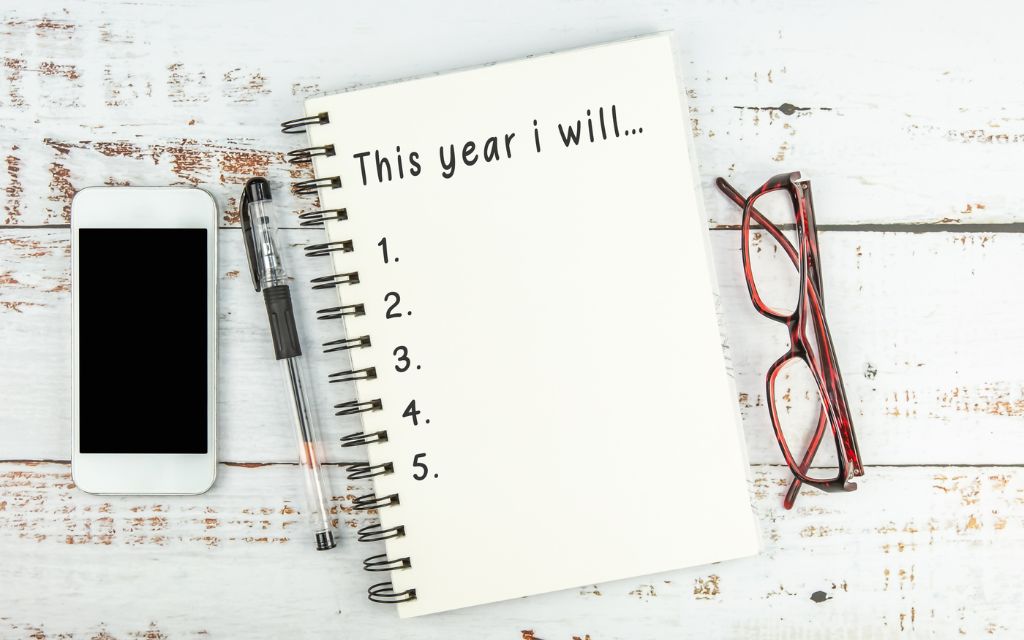Every January, millions of people across the globe resolve to read more books for their new year’s resolutions; unfortunately, most do not stick with it. Too many of us struggle to cultivate a reading habit due to a lack of time or distractions. It is a shame, as reading has many benefits, especially for Christians. We significantly benefit from the wisdom of the saints who have gone before us.
As Charles Spurgeon said, “Give yourself unto reading. The man who never reads will never be read; he who never quotes will never be quoted. He who will not use the thoughts of other men’s brains proves that he has no brains of his own. You need to read.”
I never struggled with reading consistently until this year, when I entered a new busy season of life. Providentially, I read an excellent book titled Atomic Habits by James Clear, which features excellent tips on forming habits. In this book, Clear lays out four fundamental steps to building long-lasting habits: obvious, easy, attractive, and satisfying. I have been applying the wisdom of this book in my life, and it has been helping me form new habits and regain lost ones due to busyness.
And in this article, I will share 16 ways to develop a reading habit based on Clear’s four steps. Some of these tips come from the book’s insights, and others from my personal experience.
Make reading obvious
Building long-lasting habits begin with making them obvious. Many of our actions are simply reactions to visual cues in our environment. For instance, we check our phone because it is next to us, snack in between meals because it is on the kitchen counter, etc. So when we begin a new habit, we must prime our environment to make it highly visible.
1. Keep your books where there is high traffic
Keep books in places you often visit in the house—for instance, the living room, dining table, bedroom, etc. Please do not keep your books in the basement, where you will quickly forget about them. Regarding habits, out of sight often means out of mind. If you have printed books, place them on a nice shelf where there will always be visible and demand your attention. You can also keep the book you are reading on your nightstand, pillow, TV remote, etc.
2. Plan the place and time to read
We are more likely to stick with habits when we have a specific place and time to do it. Scientists call this implementation intention. For example, every night, at 8 pm, I will read for at least 1 hour on the couch in the living room. Doesn’t it sound better and more likely to happen than “I will read whenever I get the time?”
3. Create a reading nook
We unconsciously associate habits with a location. For instance, when we lie in bed, we naturally want to sleep because it is what we usually do there. We know it is time to work when we sit at our desks because that is what we do there. Likewise, we can enhance our reading habits by creating a dedicated location for reading. Only make sure it is visible and inviting.
4. Stack reading with another habit
If you already have an established habit that you frequently do and consistently read after doing it. So if you drink tea every morning, you can say, “after pouring myself a cup of tea in the morning, I will read a chapter of a book.” You can also stack reading to things that are not habits per se but done regularly. For instance, I will pull out a book whenever I sit on public transportation. We do many things without thinking that we can use to build our reading habits!
Make reading Attractive
Next, we must make reading attractive and desirable. Even though we may love books and enjoy reading, we are not always disciplined to read consistently. Hence, to increase the likelihood of reading consistently, reading must be to us what immortality is to Voldemort, irresistible.
5. Make your reading nook cozy
Once you have reserved a place to do your reading, do not let it be perfunctory. Make it comfortable! Decorate it, put some cushions, scented candles, etc. Add whatever you think will beckon you to spend time there.
6. Pair it with an activity you enjoy
Pick an activity you enjoy or want to do and only do it after reading. For example, after reading, you can watch a tv show, take a bubble bath, browse social media, etc. I have a tin of delicious biscuits that I only eat if I am reading.
7. Read books that interest you
If you are new to reading, start with books that interest you and are easy to read. You do not need to start with Calvin’s Institutes, Milton’s Paradise Lost, or what others say you must read. Pick books that keep you turning the page, whether fantasy, historical drama, theology, or poetry (no heretical or sinful books, though).
8. Join a reading community
Being in a culture where reading is approved and praised is a powerful motivator to keep reading. So if possible, join a book club at your church or online, get together with friends who also love reading, and talk about books. Over the last two years, being a part of the Christian bookstagram community significantly contributed to cultivating and developing my reading habit.
Make Reading Easy
Habits should be as effortless and convenient as possible. Easy here does not refer to the activity itself but the process of making a habit from those activities. As Clear says, we naturally gravitate towards the path of least resistance. So we must eliminate any friction that will make our reading harder.
9. Always carry a book with you
If you want to read more, always carry a book and take advantage of empty periods during the day when you can fill it with reading. For example, while waiting at a doctor’s appointment, sitting on the bus, during lunch break at work, etc. Fun fact, in 2021, I read two or three books solely on the bus.
10. Set easy goals
If you are new to reading, do not start with ambitious goals like reading one book per week or 100 books per year. Set a simple target, like a chapter daily or 15 minutes of reading every evening. When you consistently hit these targets, you can slowly increment them until you reach your ultimate goal.
11. Get rid of distractions
When your reading time comes, free yourself from distractions. Too many things clamor for our attention, and reading cannot always compete. As much as I love reading, I often watch YouTube videos or scroll on social media instead of reading. So eliminate distractions as much as possible from your environment. Turn off your phone, read when kids are in bed, kiss cable goodbye, etc.
12. Keep your reading nook ready for future use
Inasmuch as a nice made-up bed invites you to rest, a tidy nook beckons you to come, sit, and read. So when you finish using your nook, prime it for future use. Tidy up any mess, arrange the book you are reading, keep your reading journal, notebook or iPad, pens, and highlighters within easy reach, etc. Make it easy for you to come back reading.
Make Reading Satisfying
The last step in building long-lasting habits is by making them satisfying. The first three rules serve to start a reading habit; this final step ensures we will stick with reading long term. Due to our sinful nature, we have a bent toward instant gratification and are prone to repeat pleasurable actions. We can use that to our advantage by adding little bits of immediate pleasure after reading. This feeling of satisfaction will significantly improve our likelihood of reading again. As Clear says, “to make a habit stick, you need to make it successful—even if it is in a small way.”
13. Treat yourself after completing a reading goal
It does not have to be big, just a little treat to motivate you to come back and read. For instance, for every reading session, put $1 in a jar towards a new pair of shoes or, if you are nerdy like me, another book. Or, if you read consistently for a week, treat yourself to a movie night.
14. Keep a reading list (TBR)
TBR stands for To Be Read. It is a way of tracking books that interests you and ensuring you always have something to read. Crossing books out of this list will give you a little satisfaction, and adding new books might encourage you to keep reading.
15. Measure your progress
Measure your reading progress with a tracker. Habit trackers are effective in building habits because they are obvious (you can see easily see your performance), attractive (it will motivate you to either pick up the pace or not break the chain), and satisfying (there is a little feeling of accomplishment when you check off another box). I also find the GoodReads yearly challenges very satisfying. Every time I mark a book as read and see my progress increase, I am pleased and want to do it again. And when I fall behind, I get motivated to read more.
16. Accountability partner
Ask a friend or spouse to hold you accountable for your reading goals. Knowing someone is watching will not only motivate you to read consistently, but it will satisfy you by telling them that you made it through.
Visit many good books but live in the Bible.
Charles Spurgeon
Cultivating a new habit can be challenging, and even if you apply all the tips above, there will be times when you will not be consistent. That is okay, but as Clear says in the book, never miss twice in a row. Whenever you “break the chain,” do your best to get back on track as soon as possible.
And as you start reading more books, never neglect the most important book of all! The good news is that we can also apply all these tips to Bible reading!
So go forth and cultivate the habit of reading good books and The Good Book!







